The Man Who Talked Too Much

Brief Synopsis
Cast & Crew
Vincent Sherman
George Brent
Virginia Bruce
Brenda Marshall
Richard Barthelmess
William Lundigan
Film Details
Technical Specs

Synopsis
After Stephen Forbes helps send an innocent man to the electric chair, he resigns from the district attorney's office and goes into business for himself. When Steve defends a small businessman against a gangster and wins his case, he catches the attention of gangster J. B. Roscoe, who offers him work defending his men. Because he needs the money to keep his younger brother Johnny in law school, Steve agrees, becoming very wealthy from the work. After his graduation, Johnny joins Steve's firm. Gradually, he becomes aware of his brother's lack of ethics. Joan Reed, Steve's secretary, suggests to Johnny that they make it their business to keep Steve honest. Johnny is sickened when Steve drinks poison in court to prove that his client could not have murdered anyone with the contents of the bottle and then has his stomach pumped after the innocent verdict is read. Determined to save his brother from himself, Johnny gives the government crucial evidence of Roscoe's income tax evasion. Steve realizes that the information could only have come from Johnny, and to protect him, he tells Roscoe that he will no longer work for him. As revenge, Roscoe frames Johnny for a murder. Steve defends Johnny but loses his case. His only hope is to break the alibi of the man who actually committed the crime. With only minutes to spare before Johnny's execution, Steve gets a signed confession. The brothers are reconciled, and Steve is finished with his former life.

Director

Vincent Sherman
Cast
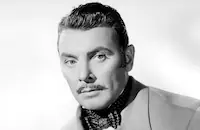
George Brent

Virginia Bruce

Brenda Marshall

Richard Barthelmess

William Lundigan

George Tobias

John Litel
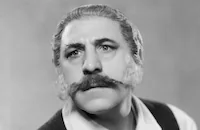
Henry Armetta

Alan Baxter
David Bruce
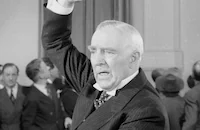
Clarence Kolb

Louis Jean Heydt
Marc Lawrence
Edward Stanley
Kay Sutton
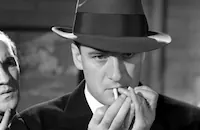
Elliott Sullivan
Dick Rich
Phyllis Hamilton

John Ridgely
William Forrest

Maris Wrixon

Dana Dale
Paul Phillips
William Gould
De Wolfe Hopper
George Haywood
Creighton Hale
Lottie Williams
Frank Mayo

Emmett Vogan

Tom Wilson
Cliff Saum
Napoleon Simpson
Glen Cavender
Jack Richardson
Sally Sage

James Flavin

Jack Mower
Mary Gordon
Rosina Galli
Harry Seymour

George Reeves
Thomas W. Ross
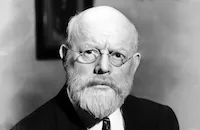
Howard Mitchell
Jack Gardner
Alexander Leftwich
Peter Ashley
George Kirby

Herbert Anderson
Paul Ravel
Eddie Foster
Frank Bruno
Alan Davis
Douglas Wood

John Hamilton
Sam Mcdaniel
James Blaine
Ruth Robinson
Vera Lewis

Suzanne Carnahan
Charles Sherlock
Crew
Earl Baldwin
Walter Deleon
Leo F. Forbstein
Bryan Foy
Edmund Grainger
Ray Heindorf
Sid Hickox
Lee Hugunin
William Kissell
Charles Perry
Thomas Pratt
Tom Reed
Hugh Reticker
H. Roemheld
Howard Shoup
Dolph Thomas
Jack L. Warner
Perc Westmore

Film Details
Technical Specs

Articles
The Man Who Talked Too Much
By Glenn Erickson

The Man Who Talked Too Much
Quotes
Trivia
George Reeves' role as the first hotel clerk was filmed but cut.
The script was unfinished at the start of production and was revised throughout.
The original play opened in Brooklyn, N.Y. on 10 June 1929.
Notes
The working titles of this picture were The Sentence and Broadway Lawyer. Although the onscreen credits attribute the screenplay to Walter DeLeon and Earl Baldwin, the Film Daily, Motion Picture Herald and Variety reviews give screenplay credit to DeLeon and Tom Reed. In the copyright records, Reed's name is deleted and replaced with that of Baldwin; Reed is not credited in Screen Achievements Bulletin. The 1932 Warner Bros. film The Mouthpiece was also based on Frank L. Collins' play (see below). For information on other filmed adaptations of the Collins play for The Mouthpiece.















